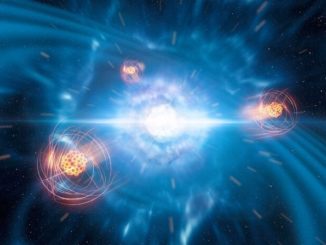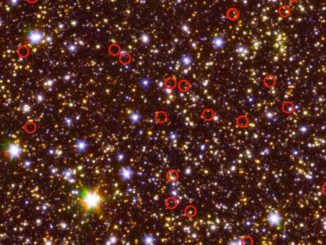
nucleosynthesis

News

News

News

News
Small metal-deficient galaxy could shed new light on Big Bang
Astronomers recently found that a galaxy about 30 million light-years away nicknamed Leoncino, or “little lion,” contains the lowest level of heavy chemical elements, or “metals,” ever observed in a gravitationally bound system of stars. The elemental make-up of metal-poor galaxies is very close to that of the early universe.
